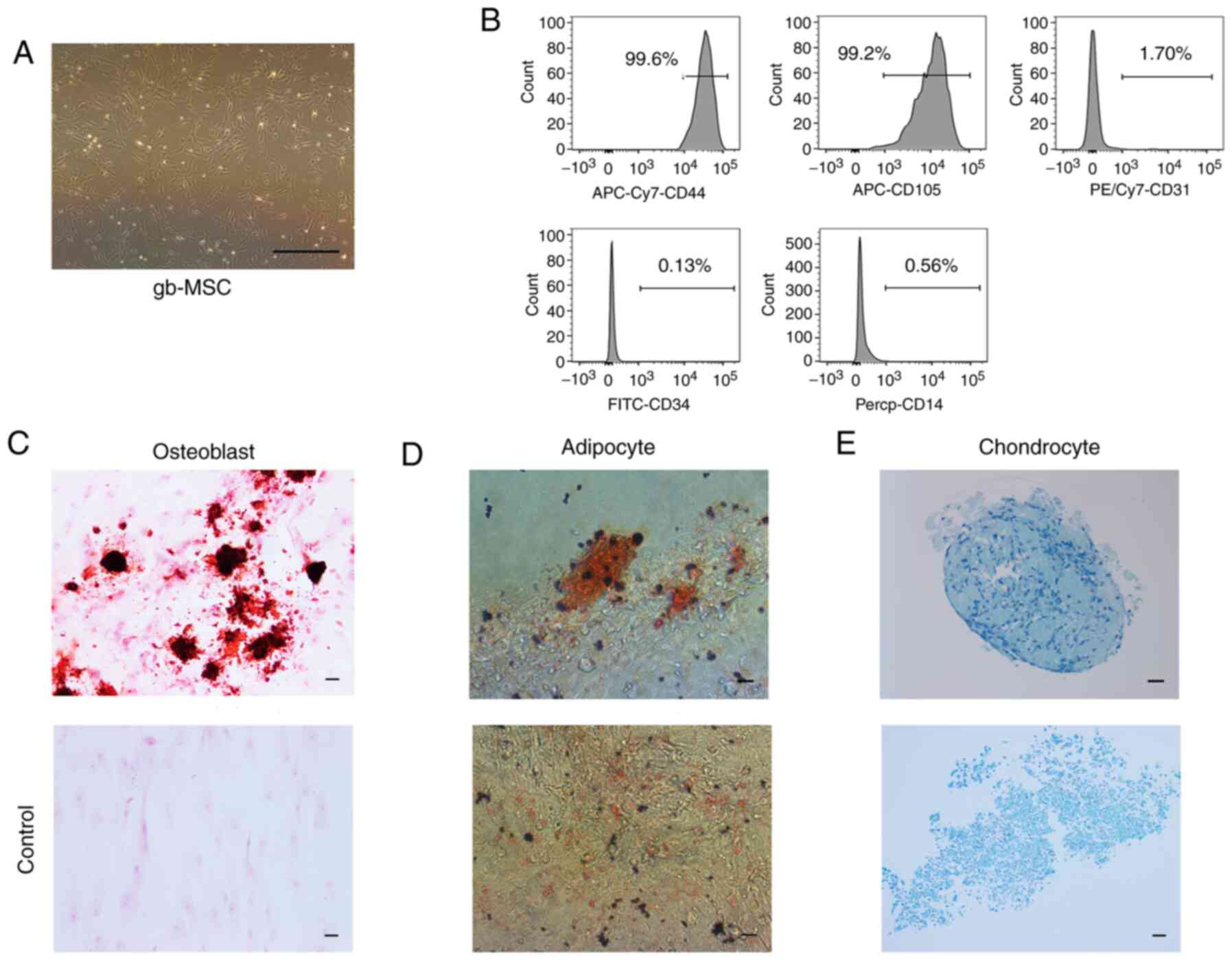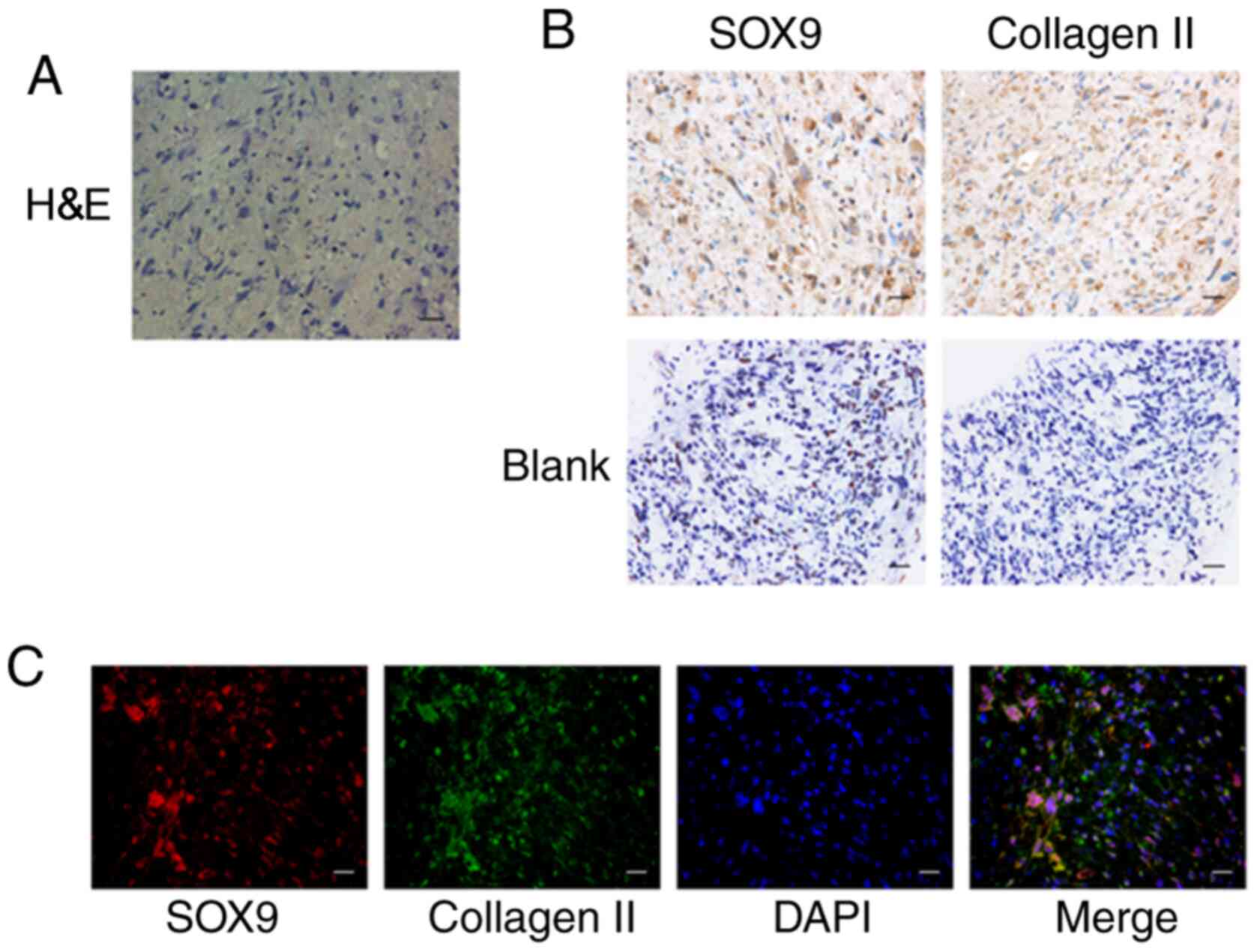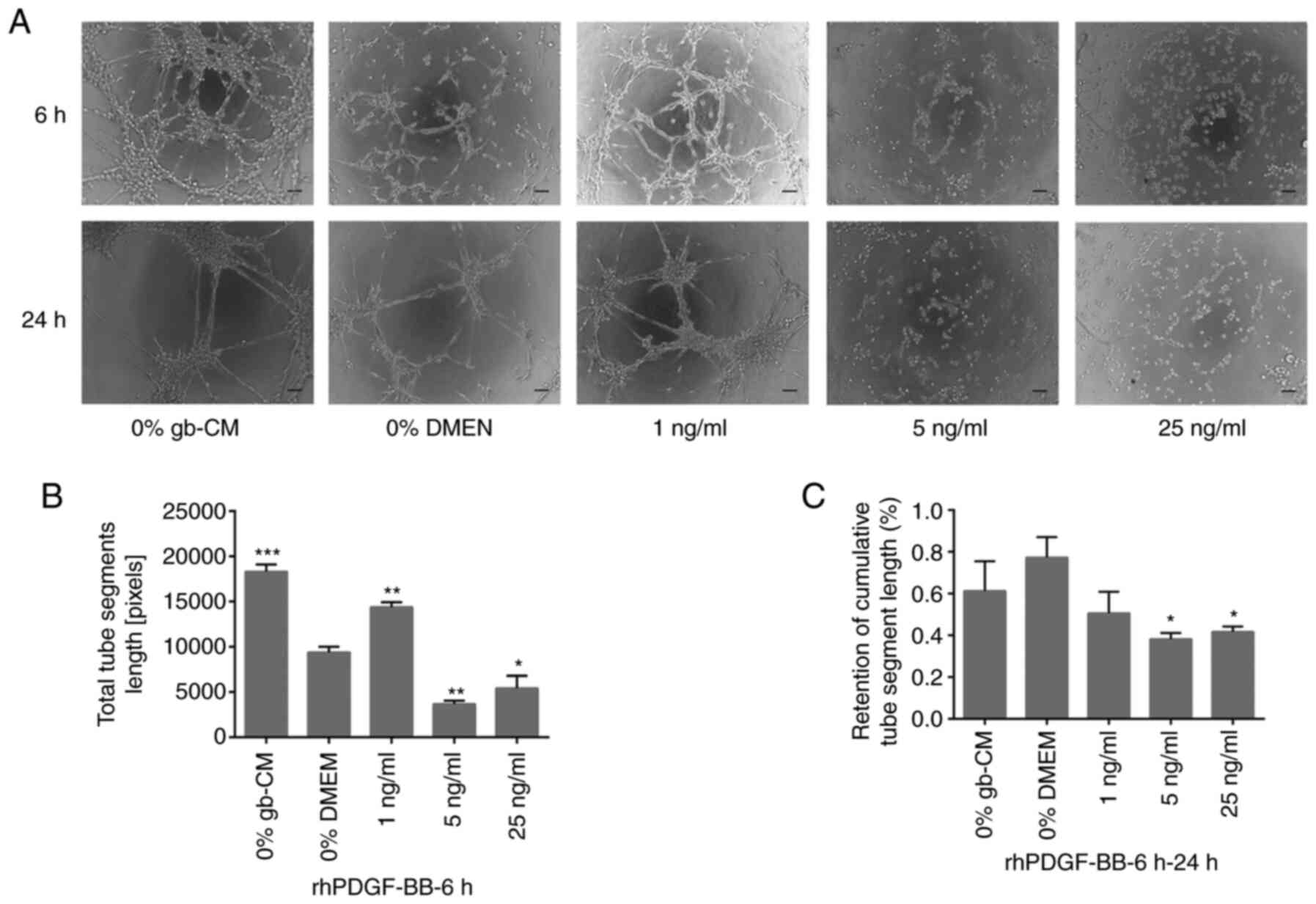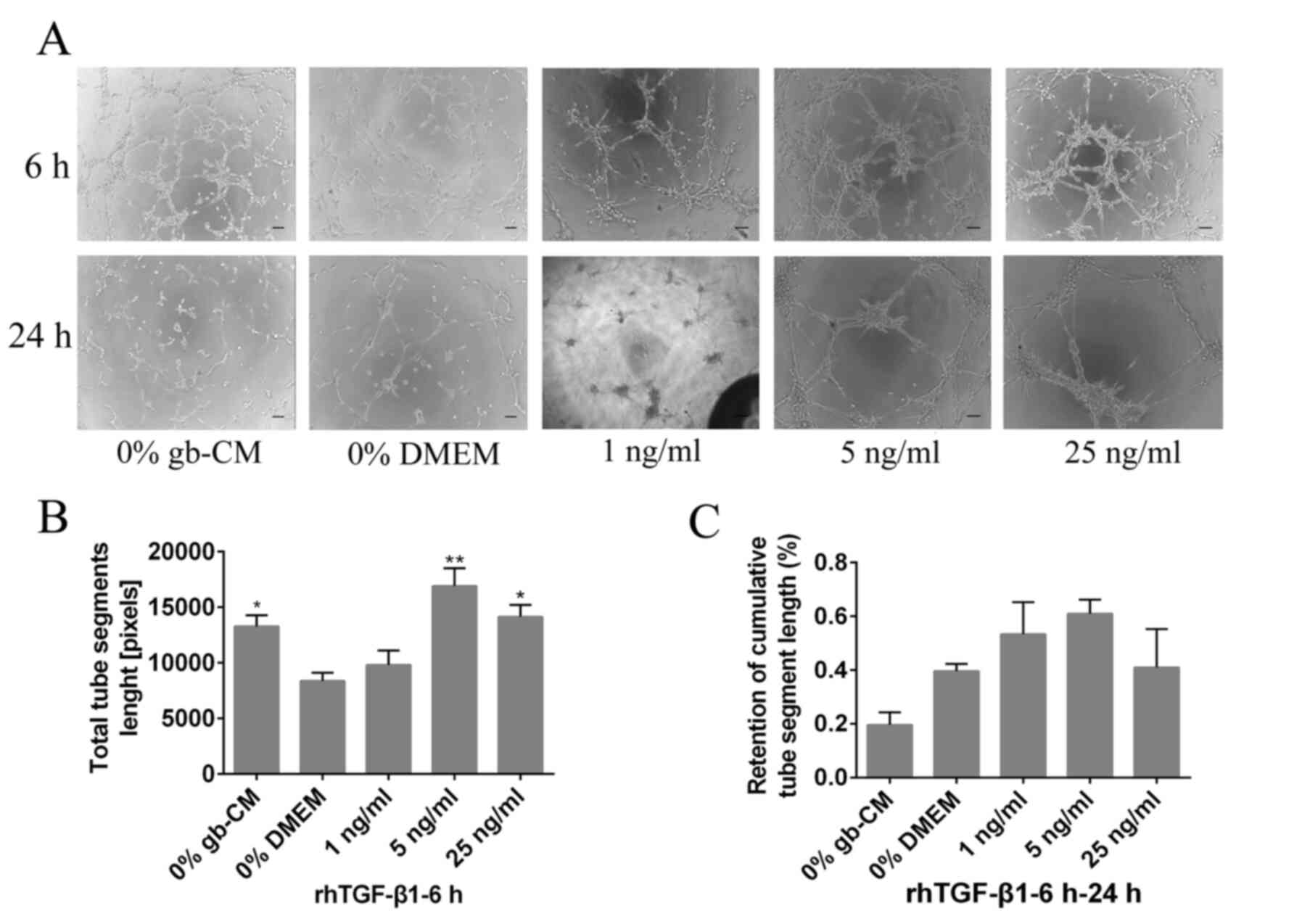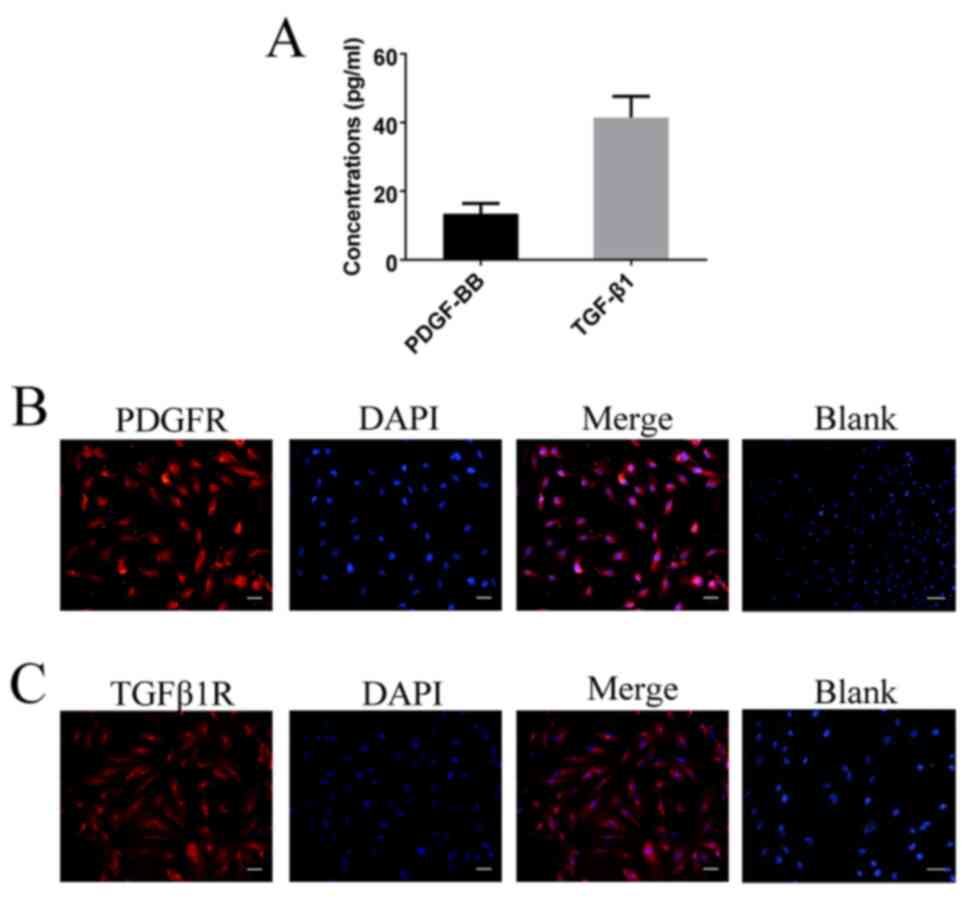|
1
|
Stupp R, Mason WP, van den Bent MJ, Weller
M, Fisher B, Taphoorn MJ, Belanger K, Brandes AA, Marosi C, Bogdahn
U, et al: Radiotherapy plus concomitant and adjuvant temozolomide
for glioblastoma. N Engl J Med. 352:987–996. 2005. View Article : Google Scholar : PubMed/NCBI
|
|
2
|
Fu P, He YS, Huang Q, Ding T, Cen YC, Zhao
HY and Wei X: Bevacizumab treatment for newly diagnosed
glioblastoma: Systematic review and meta-analysis of clinical
trials. Mol Clin Oncol. 4:833–838. 2016. View Article : Google Scholar : PubMed/NCBI
|
|
3
|
Holland EC: Glioblastoma multiforme: The
terminator. Proc Natl Acad Sci USA. 97:6242–6244. 2000. View Article : Google Scholar : PubMed/NCBI
|
|
4
|
Surawicz TS, Davis F, Freels S, Laws ER Jr
and Menck HR: Brain tumor survival: Results from the national
cancer data base. J Neurooncol. 40:151–160. 1998. View Article : Google Scholar : PubMed/NCBI
|
|
5
|
DeAngelis LM: Brain tumors. N Engl J Med.
344:114–123. 2001. View Article : Google Scholar : PubMed/NCBI
|
|
6
|
Hossain A, Gumin J, Gao F, Figueroa J,
Shinojima N, Takezaki T, Priebe W, Villarreal D, Kang SG, Joyce C,
et al: Mesenchymal stem cells isolated from human gliomas increase
proliferation and maintain stemness of glioma stem cells through
the IL-6/gp130/STAT3 pathway. Stem Cells. 33:2400–2415. 2015.
View Article : Google Scholar : PubMed/NCBI
|
|
7
|
Zhang Q, Yi DY, Xue BZ, Wen WW, Lu YP,
Abdelmaksou A, Sun MX, Yuan DT, Zhao HY, Xiong NX, et al: CD90
determined two subpopulations of glioma-associated mesenchymal stem
cells with different roles in tumour progression. Cell Death Dis.
9:11012018. View Article : Google Scholar : PubMed/NCBI
|
|
8
|
Shahar T, Rozovski U, Hess KR, Hossain A,
Gumin J, Gao F, Fuller GN, Goodman L, Sulman EP and Lang FF:
Percentage of mesenchymal stem cells in high-grade glioma tumor
samples correlates with patient survival. Neuro Oncol. 19:660–668.
2017.PubMed/NCBI
|
|
9
|
Birnbaum T, Roider J, Schankin CJ, Padovan
CS, Schichor C, Goldbrunner R and Straube A: Malignant gliomas
actively recruit bone marrow stromal cells by secreting angiogenic
cytokines. J Neurooncol. 83:241–247. 2007. View Article : Google Scholar : PubMed/NCBI
|
|
10
|
Birnbaum T, Hildebrandt J, Nuebling G,
Sostak P and Straube A: Glioblastoma-dependent differentiation and
angiogenic potential of human mesenchymal stem cells in vitro. J
Neurooncol. 105:57–65. 2011. View Article : Google Scholar : PubMed/NCBI
|
|
11
|
Yi D, Xiang W, Zhang Q, Cen Y, Su Q, Zhang
F, Lu Y, Zhao H and Fu P: Human glioblastoma-derived mesenchymal
stem cell to pericytes transition and angiogenic capacity in
glioblastoma microenvironment. Cell Physiol Biochem. 46:279–290.
2018. View Article : Google Scholar : PubMed/NCBI
|
|
12
|
Kargiotis O, Rao JS and Kyritsis AP:
Mechanisms of angiogenesis in gliomas. J Neurooncol. 78:281–293.
2006. View Article : Google Scholar : PubMed/NCBI
|
|
13
|
Keerl S, Gehmert S, Gehmert S, Song YH and
Alt E: PDGF and bFGF modulate tube formation in adipose
tissue-derived stem cells. Ann Plast Surg. 64:487–490. 2010.
View Article : Google Scholar : PubMed/NCBI
|
|
14
|
Frei K, Gramatzki D, Tritschler I,
Schroeder JJ, Espinoza L, Rushing EJ and Weller M: Transforming
growth factor-β pathway activity in glioblastoma. Oncotarget.
6:5963–5977. 2015. View Article : Google Scholar : PubMed/NCBI
|
|
15
|
Liubich LD, Kovalevska L, Lisyany MI,
Semenova VM, Malysheva TA, Stayno LP and Vaslovych VV: TGF-β1
expression by glioma C6 cells in vitro. Exp Oncol. 39:258–263.
2017. View Article : Google Scholar : PubMed/NCBI
|
|
16
|
Ferrari G, Cook BD, Terushkin V, Pintucci
G and Mignatti P: Transforming growth factor-beta 1 (TGF-beta1)
induces angiogenesis through vascular endothelial growth factor
(VEGF)-mediated apoptosis. J Cell Physiol. 219:449–458. 2009.
View Article : Google Scholar : PubMed/NCBI
|
|
17
|
Kaminska B, Kocyk M and Kijewska M: TGF
beta signaling and its role in glioma pathogenesis. Adv Exp Med
Biol. 986:171–187. 2013. View Article : Google Scholar : PubMed/NCBI
|
|
18
|
Yang XJ, Chen GL, Yu SC, Xu C, Xin YH, Li
TT, Shi Y, Gu A, Duan JJ, Qian C, et al: TGF-beta1 enhances
tumor-induced angiogenesis via JNK pathway and macrophage
infiltration in an improved zebrafish embryo/xenograft glioma
model. Int Immunopharmacol. 15:191–198. 2013. View Article : Google Scholar : PubMed/NCBI
|
|
19
|
Battegay EJ, Rupp J, Iruela-Arispe L, Sage
EH and Pech M: PDGF-BB modulates endothelial proliferation and
angiogenesis in vitro via PDGF beta-receptors. J Cell Biol.
125:917–928. 1994. View Article : Google Scholar : PubMed/NCBI
|
|
20
|
Cumpanas AA, Cimpean AM, Ferician O,
Ceausu RA, Sarb S, Barbos V, Dema A and Raica M: The involvement of
PDGF-B/PDGFRβ axis in the resistance to antiangiogenic and
antivascular therapy in renal cancer. Anticancer Res. 36:2291–2295.
2016.PubMed/NCBI
|
|
21
|
Xiong B, Gong LL, Zhang F, Hu MB and Yuan
HY: TGF beta1 expression and angiogenesis in colorectal cancer
tissue. World J Gastroenterol. 8:496–498. 2002. View Article : Google Scholar : PubMed/NCBI
|
|
22
|
Xue Y, Lim S, Yang Y, Wang Z, Jensen LD,
Hedlund EM, Andersson P, Sasahara M, Larsson O, Galter D, et al:
PDGF-BB modulates hematopoiesis and tumor angiogenesis by inducing
erythropoietin production in stromal cells. Nat Med. 18:100–110.
2011. View
Article : Google Scholar : PubMed/NCBI
|















